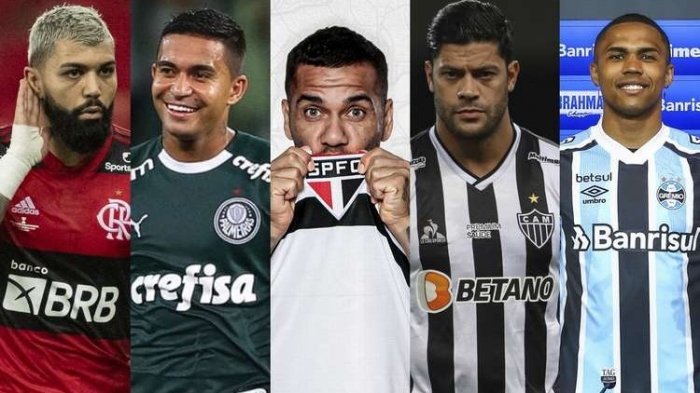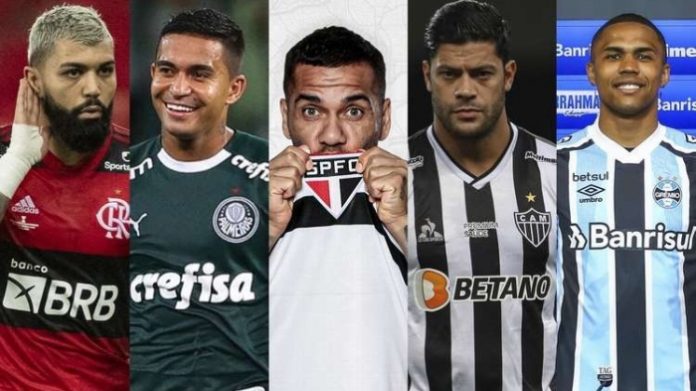
A
lthough the operation was legalized at the end of 2018, through bill 13,758, the lack of regulation does not allow betting companies to operate in the country, so the solution is to offer services through their bases abroad.
Therefore, online gambling in Brazil remains illegal, with the exception of operations controlled by the state itself, through the Federal Lottery. But the companies are attentive to the progress of regulation, and they want to gain Brazilian ground, to take the initiative as soon the regulation is carried out.
The sector already makes billions of Brazilian reals in the country. According to an estimate by the Sports Value consultancy, Brazilians make around BRL $4 billion in sports bets per year (about USD $768.7 million). In the first quarter of 2021, the total investment in advertising of these companies reached BRL $140 million (almost USD $27 million), three times more than in the same period last year.
Companies operating in Brazil show interest in starting to operate legally and pay taxes if the regulation is approved. One of them is Betsson, who already operates a “fantasy game” in Brazil, along the same lines as the Cartola do Globo, which has been in operation for a few years. The brand also operates games of chance from the company’s site in Malta. “We are the exception in Brazil, but we also want to bring the operation of the betting site here when the business is regulated,” explained Andre Gelfi, Betsson’s CEO in Brazil. The company is also betting on sponsorships to gain better recognition: it decided to give the highest value in the history of the Ibis team from Pernambuco, known as the “worst team in the world”.
Other brands, however, already support much larger teams. Recently, SportsBet.io announced the largest sponsorship in the history of São Paulo, to occupy the main space on their jersey. Values were not disclosed, but Sports Value estimated that at least BRL $17 million (USD $3.24 million) was paid for the space, which will be under the company’s brand until 2024.
“Betting houses also took advantage of a time of crisis, in which there is less interest in sponsoring football because of the pandemic, to get more exposure,” said Amir Somoggi, partner at Sports Value.
Betsul is the brand that currently has the most sponsored teams: Internacional, Grêmio, Fortaleza, Chapecoense and Ceará. “A month and a half ago they contacted us with this proposal and we saw that it is a road of no return. In addition to participating in the value of the bets, we will also be able to carry out various actions”, commented Jorge Avancini, Vice President of International Marketing.
Galerabet, for example, did not even launch its website in Brazil (but it does have servers in Israel and Cyprus, in addition to the license in Malta). Even so, it is already a sponsor of Corinthians, Sport and Cruzeiro. With launching scheduled for August, the company sees great potential in the market through regulation and job creation. “It does not make sense to operate in Brazil with a Pakistani or Indian operator. We want to generate employment and generate a market in the country,” said Ricardo Rosado, Vice President of Business Development and Marketing at Galerabet.
The government has made a conservative estimate that it can collect BRL $400 million (USD $76 million) to BRL $700 million (USD $133 million) in taxes. And according to the Secretary of Evaluation, Planning, Energy and Lottery, Gustavo Guimarães, there is ongoing work within the Ministry of Economy for this regulation project to come out next year, before the 2022 World Cup that will be held in Qatar in November.
“Every day that passes, is a day less that we have to exploit a market that is already working, but that needs to be regulated to bring security and generate income for the government,” said the secretary.
The lack of clear regulation hinders the development of the market, which also suffers criticisms for encouraging compulsive gamblers or for the possible manipulation of sports results.
Today, the growth of the market in the absence of regulation could bring problems both for the sport and for the consumers as well: without rules and with companies based outside of Brazil, for example, if a client has not received the value of their bet, there is no one to complain to.
“There isn’t a well-built device to identify irregularities and avoid them. And the legal uncertainty in the Brazilian market also ends up driving the world’s largest investors away”, says lawyer Pedro Trengrouse, a partner at the Trengrouse & Gonçalves firm that specializes in the sector.
According to secretary Guimarães, all these key points are being discussed in the regulations: “The challenges are huge and we are going to propose legislation that takes care of the player and that addresses the pathology of the game.”
Original article: https://www.yogonet.com/international//noticias/2021/08/13/58839-pending-regulation-sports-betting-companies-partner-with-sports-clubs-in-brazil














